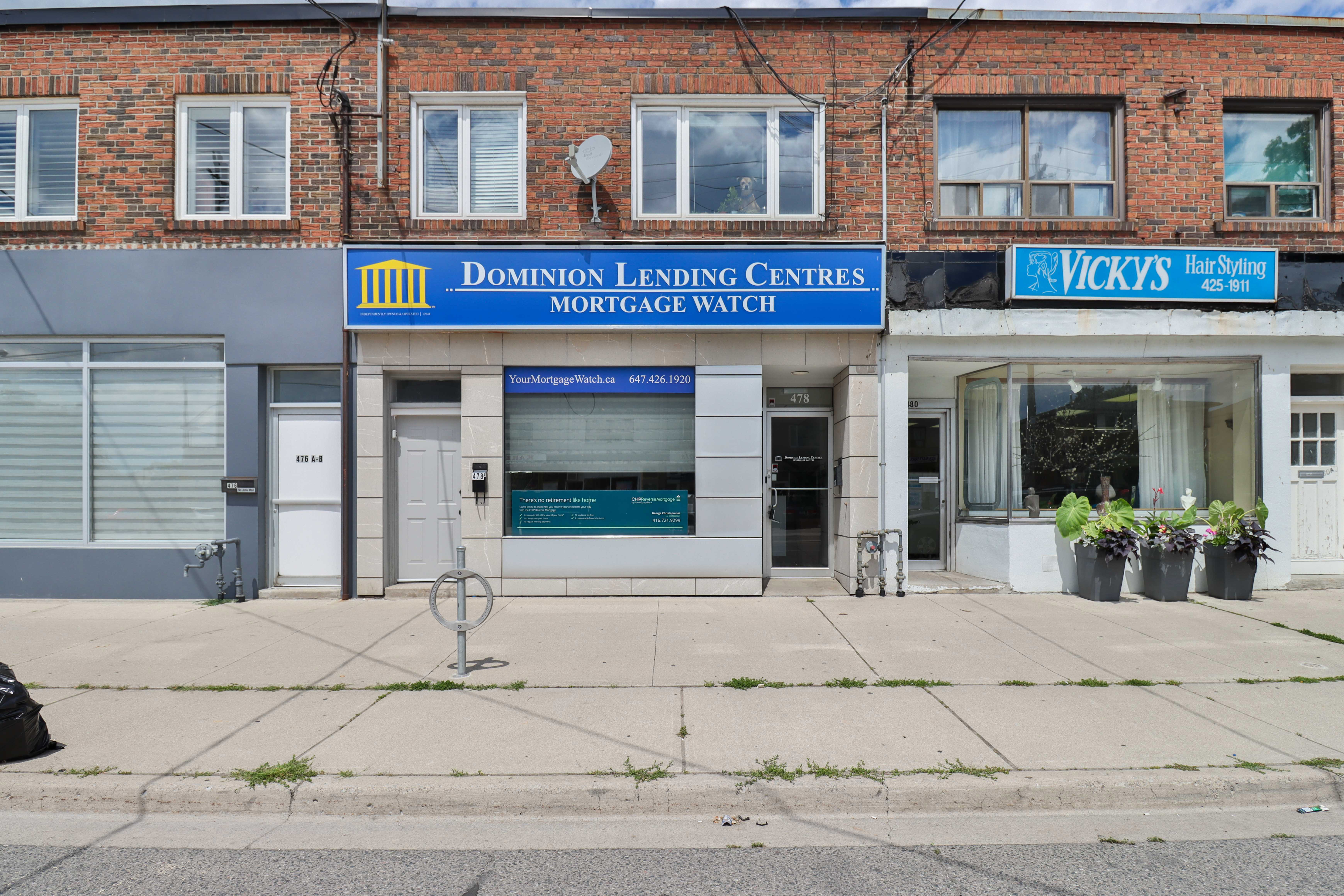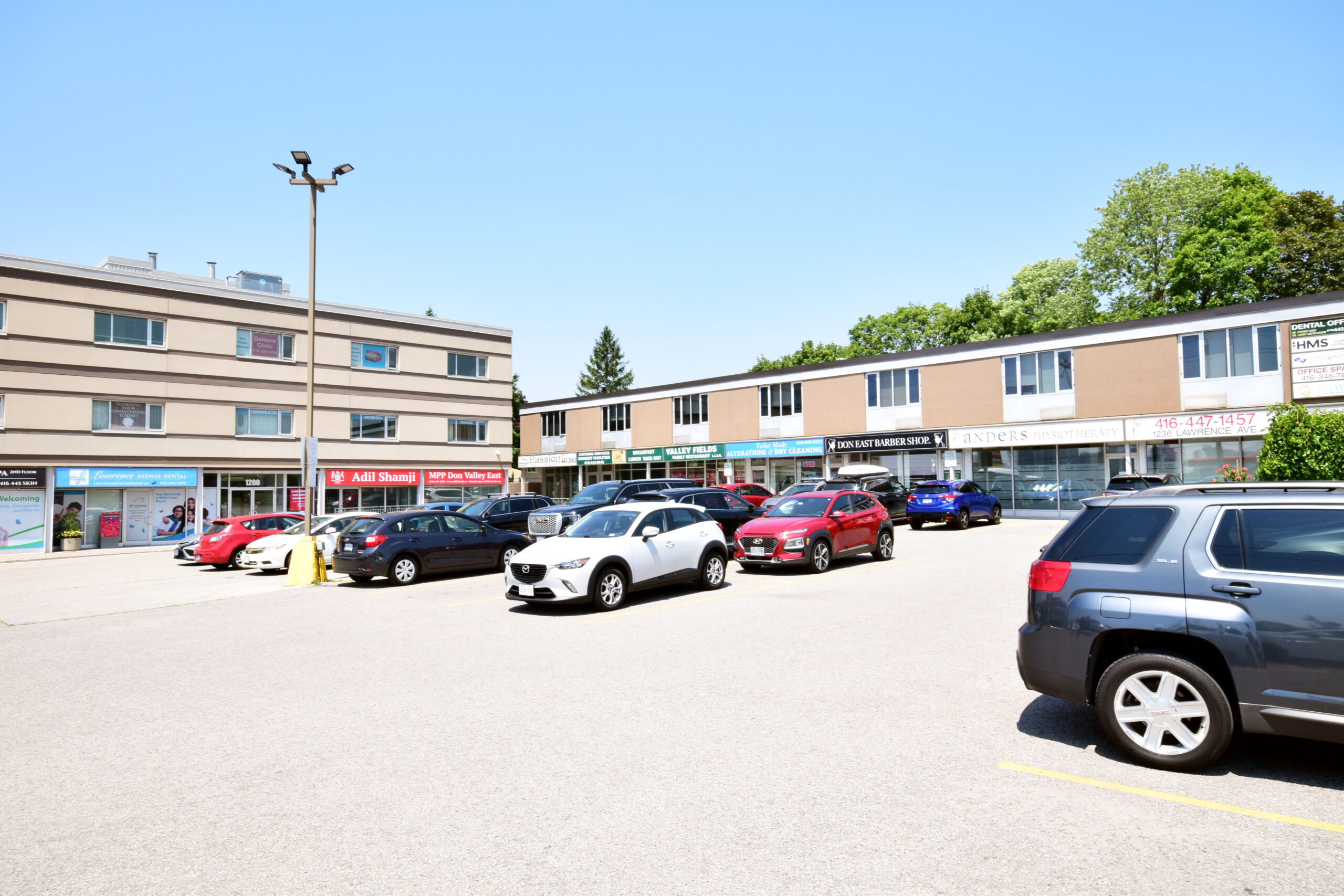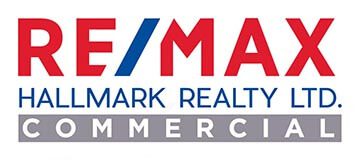Author The Lilly Commercial Team

Some Property Pros Are More Optimistic Over Prospects For Rest Of Year
More than nine out of 10 Avison Young professionals in Canada foresee commercial real estate activity increasing or at least holding steady in the second half of 2025, according to a mid-year survey by the real estate services firm.
Only 7% of Avison Young brokers who responded to the in-house survey had a negative outlook for the sector and predicted that activity would decline.
Avison Young, a global brokerage firm with its headquarters in Toronto, said that while the first half of 2025 was marked by uncertainty and driven by political shifts and macroeconomic pressures, a growing sense of momentum and opportunity is emerging across the country.
“When I look at this what I see is going into last fall we started seeing green shoots and improvement and that was based on our transaction volumes starting to improve and some of asset classes getting more attention than they were before,” said Mark Fieder, a principal and president of Avison Young Canada, in an interview with CoStar News. He also said the reaction from the real estate company’s professionals is an extension of what they are hearing from clients.
“It’s a much broader opinion being filtered through our brokers,” Fieder said. “It’s a pretty broad representation, and it’s also a national perspective.”
The survey comes as Canada’s office vacancy rates are still elevated compared to historical levels, according to CoStar Market Analytics. “Continued momentum in leasing and net absorption remains necessary to bring the office market back into balance,” CoStar said in a recent report. “However, growing uncertainty and economic disruptions brought on by the US trade war at the end of the first quarter are now threatening that progress.”
While the trade relationship between the two countries continues to change, including in the past week, CoStar said in another report that as of March, “underlying economic data reflecting distribution demand, such as container and port traffic, have certainly eased, but have not capitulated.”
Across all real estate asset classes, 45% of survey respondents said they expect activity to climb in the second half of the year, while another 48% said it will be at the same level as in the first half.
Fieder said falling interest rates have helped drive optimism in the sector, but the battle with the United States over tariffs has also impacted the market.
“It’s really about the uncertainty,” said Fieder. “Everybody is talking about it. It’s the uncertainty, we know tariffs are not going to be as bad as we thought they would be.”
Avison Young’s survey results suggest a shift toward higher capitalization rates. The real estate company said, “Investors and occupiers alike are recalibrating their strategies in response to shifting demand patterns, supply chain adjustments, and changing workplace behaviours.”
Office sector gains optimism
By asset class, respondents were most optimistic about the office sector, with 54% predicting a better second half and 46% seeing no change. The firm said the high level of optimism also reflects the sector’s recovery from a low point.
The industrial sector, which had been on a roll of strong performances over the past several years, received the most negative outlook. 17% of survey respondents expected the market to be down, and only 35% predicted a better second half. A little less than half, or 48%, forecast the status quo.
“There were things that people paused at the beginning of the year, not knowing, but now they have to carry on with business,” said Marie-France Benoit, principal and director of market intelligence with Avison Young Canada, referring to the impact of the tariff battle, in an interview.
“A lot of companies are now firming up their return to office policies. They need more space,” Benoit said. “There were anecdotes [about companies needing more space]. But now we are starting to see it in the data. It’s not a lot, and there is space to be absorbed, but there is no new construction.”
As for Fieder, he said retail, industrial and multifamily remain popular acquisition targets for buyers, but as demand for office space shifts, he expects the office recovery will lead to more investor interest in that asset class.
“The financial sector is calling back its people [to the office],” he said. “It’s the worst-kept secret that those institutions are in the market for new space. It is pure absorption, and that is starting to take hold.
“People have been home to some degree for five years and a lot of companies have hired people in five years and they haven’t addressed their office space needs. Not just in Toronto, but in other major markets as well.”
Source CoStar. Click here for the full story.
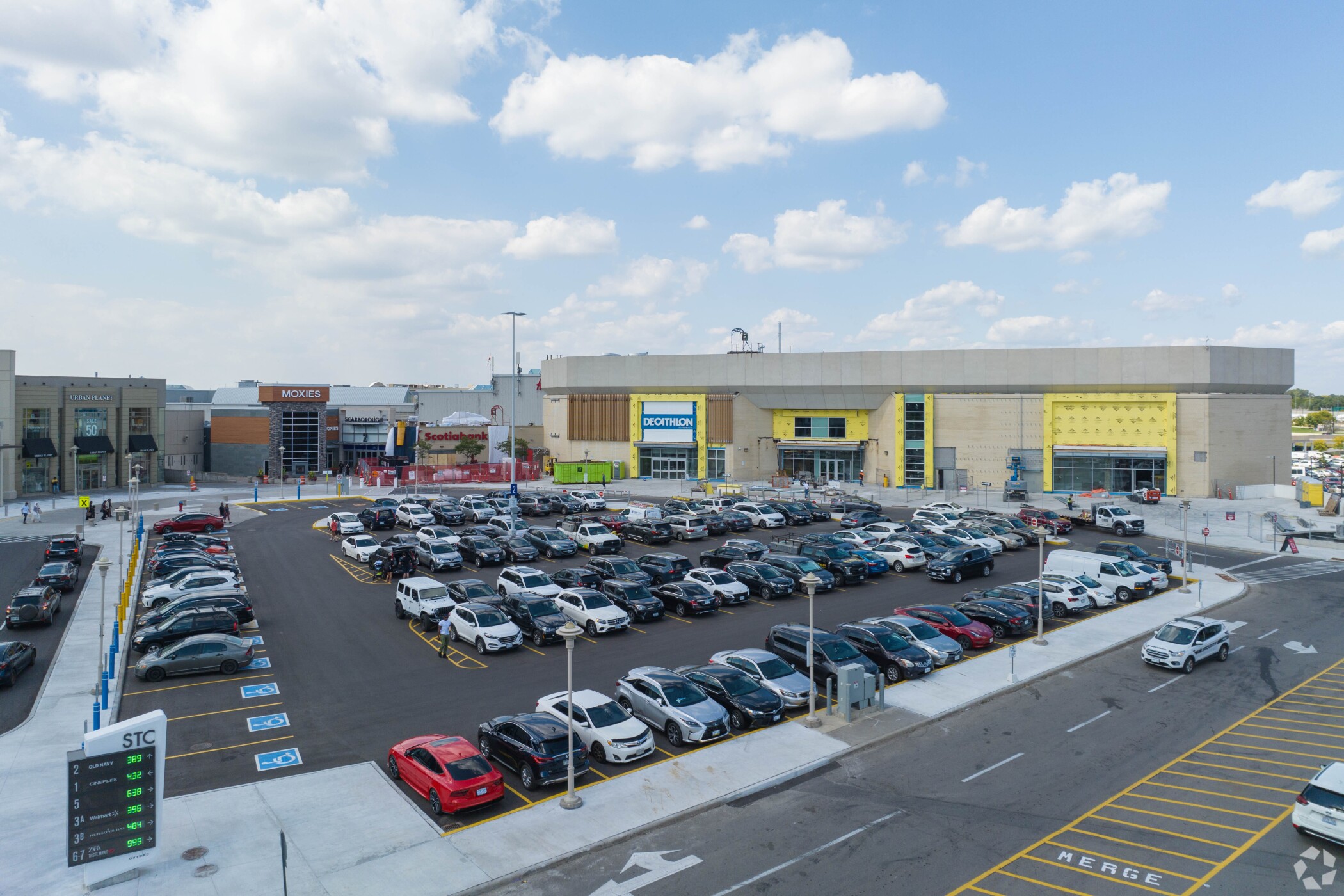
Decathlon To Close Five Toronto-area Sporting Goods Stores
French chain to cease operations in Vaughan, Brampton, Burlington, Markham and Scarborough, considers opening smaller stores
Decathlon is closing five of its 20 stores in Canada, all in the Toronto area, after the French sporting goods chain expanded aggressively following its arrival in 2018.
The sporting goods retailer said it will close its stores in Vaughan, Brampton, Burlington, Markham and Scarborough, which range in size between 35,000 and 65,000 square feet.
The retailer also said it may look to open other stores in the Greater Toronto Area in smaller spaces.
“We are also considering a return to brick-and-mortar stores with a smaller footprint in the GTA,” it said in a statement. Decathlon did not indicate when it planned to close the stores.
The planned closings come as the Toronto area’s retail market, which contains about 300 million square feet, has an overall vacancy rate of just 1.5%, according to CoStar Market Analytics. However, the closure of 32 Hudson’s Bay department stores in Ontario earlier this year is expected to push the retail vacancy rate up slightly in Canada’s most populous province.
The pending Decathlon vacancies could provide competition for several retail landlords, including La Caisse, formerly known as Ivanhoe Cambridge, Cadillac Fairview, and Oxford Properties, that are working to backfill the Hudson’s Bay outlets that were vacated this year in the same shopping centres in Burlington, Markham and Scarborough.
Decathlon’s competitors in Canada include Walmart, Canadian Tire, Mountain Equipment Co-op, Sail, Plein Air and Sporting Life.
Decathlon operates 1,700 stores in 72 countries. The global retailer based in Villeneuve d’Ascq, France, named Javier López CEO earlier this year, replacing Barbara Martin Coppola, who had led the company since 2022. Nicolas Roucou serves as the named CEO of Decathlon Canada.
Source CoStar. Click here for the full story.
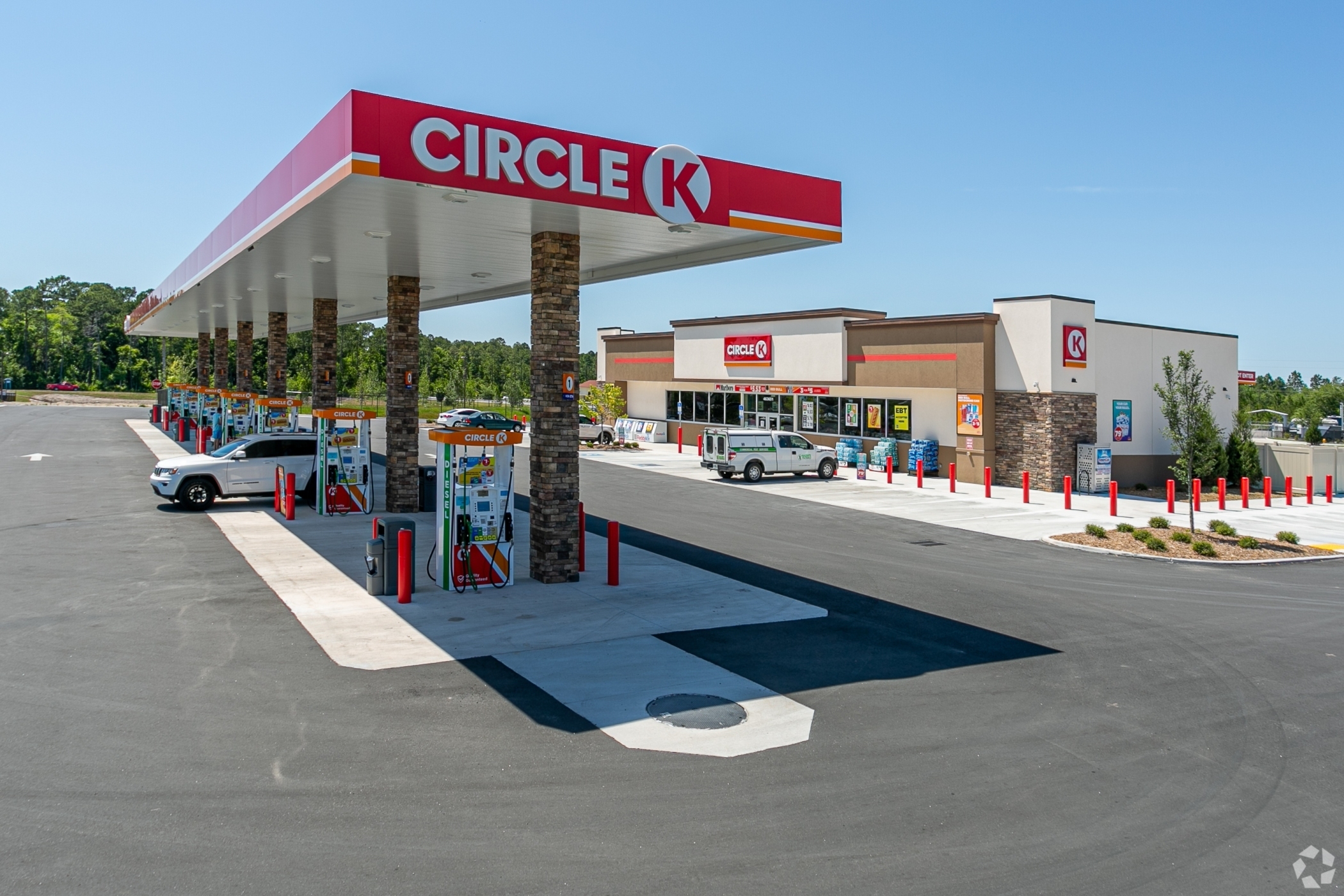
Couche-tard To Add Circle K Stores As Global Chain Ponders Expanding Offerings
While Couche-Tard executives have been trying to hammer out a megadeal to acquire the 7-Eleven convenience store chain from Seven & i Holdings, construction workers have been wielding tools in an effort to build more Couche-Tard stores.
The Laval, Quebec-based convenience store owner of the Circle K convenience store empire aims to complete 41 new stores in the upcoming quarters, after delivering 97 new stores in the recently finished fiscal 2025, according to its recent earnings report. Couche-Tard said it built or relocated 20 stores during the 12 months through April.
Couche-Tard did not specify the locations of the new outlets, but the expansion would include 40 franchised locations in Upstate New York, according to a November LinkedIn post by Justin Shelton, Circle K director of finance and planning, global franchise.
The Couche-Tard chain grew from a single store owned by current Chairman Alain Bouchard in 1980 to nearly 17,000 stores worldwide. The chain has over 7,100 outlets in 48 states of the United States under the Circle K and Holiday banners.
In the United States, government regulators are requiring Couche Tard to sell an estimated 2,000 locations as part of the deal to purchase the 85,000 stores of the 7-Eleven chain from Seven & i of Japan. Roughly 13,000 of those outlets are in the United States and Canada.
In a separate deal, Couche-Tard sold 35 stores in Ohio, Indiana and Pennsylvania to MapCo in return for government approval for Couche-Tard to acquire 270 stores from the GetGo Cafe & Market chain for about US$1.6 billion, as reported in CoStar News.
Both GetGo and 7-Eleven customarily offer more prepared food items than Couche-Tard and Circle K, most notably in Japan. The possible combination of the two chains has created speculation that Circle K could also increasingly embrace the prepared food trend.
Higher sales in Europe
Food sales in Circle K’s more than 5,000 European stores amount to roughly 40% of the overall purchases. The total drops 15% to 25% in North America, according to the National Association of Convenience Stores
Alimentation Couche-Tard co-founder Alain Bouchard has said that North American stores offer less fresh food because they have more restaurants to compete with, making it more difficult to attract a significant market share of the prepared food sector.
However, Bouchard has also expressed the ambition of adding more food offerings, as seen in the company program branded FFF, for fresh food fast.
“We have to transform ourselves as an industry,” Bouchard said in a rare public appearance at a trade industry interview conference in 2023. “If we stay the way we are, we will disappear. We have to adapt our product mix. The millennials are different, and they are asking for a different supply.”
Bouchard, now 76, is Quebec’s wealthiest person with an estimated net worth of US$6.7 billion and could not be reached for comment, as CoStar News has made a series of unanswered telephone calls and emails. A receptionist at the Laval headquarters of the operation said that Bouchard rarely comes to the office.
One industry expert said that Couche-Tard could eventually go along with the prepared food concept.
“People are much more open to trying new things and experiencing new tastes and the internet probably accelerated that with social media,” said Jeff Lenard, vice president of industry advocacy at the National Association of Convenience Stores, in an interview.
Prepared food already represents 26% of sales at convenience stores in the United States, according to Lenard, as shoppers are increasingly demanding something other than packaged foods.
“The traditional supply chain for convenience stores was limited delivery limited distribution as little as once every two weeks, so the genesis of the industry was focused on packaged goods that had a long shelf life and little spoilage. It made perfect sense for decades, but things have changed,” said Lenard.
If Couche-Tard takes over the 7-Eleven chain, the combined operation would have roughly 20,000 of the estimated 150,000 convenience stores in the United States. Over 90,000 convenience stores in the United States are operated by independent organizations.
Source CoStar. Click here for the full story.

Canada Infrastructure Bank Provides Loan To Fund Energy Efficiency Upgrades For Commercial Properties
Crown corporation completes $50 million loan to Dream Industrial to upgrade 34 warehouses
Dream Industrial Real Estate Investment Trust closed a $50 million loan with Canada Infrastructure Bank, a federal Crown corporation, to retrofit 34 industrial buildings in Alberta, Ontario and Quebec.
Canadian Infrastructure Bank, or CIB, said the investment in Dream Industrial will support its work to upgrade mid- and large-bay warehouses used for urban logistics, light industrial and distribution. The building upgrades will include mechanical and electrical systems, renewable energy generation, heating, ventilation and air conditioning systems, fuel switching, energy management technology, building envelope and electric vehicle charging, CIB said.
CIB funds energy retrofits nationwide to help reduce carbon emissions from commercial buildings, a property sector the bank said accounts for 18% of Canada’s total emissions.
“Investing in high-impact retrofits, including solar installations, aligns with Dream Industrial’s strategy to invest in opportunities that produce attractive returns while improving the sustainability and resiliency of our assets, and help reduce emissions to accelerate the transition to a low-carbon built environment,” Dream Industrial President and CEO Alexander Sannikov said in a statement.
Dream’s retrofit projects are expected to create approximately 630 jobs and generate 14,500 megawatt hours of clean electricity from installed renewable power generation, such as solar panels, CIB said.
“Dream Industrial’s new initiative is proof that our building retrofits program is succeeding in helping Canada’s building owners to upgrade their properties and reduce energy use at scale,” Canada Infrastructure Bank CEO Ehren Cory said in a statement.
Source CoStar. Click here for the full story.
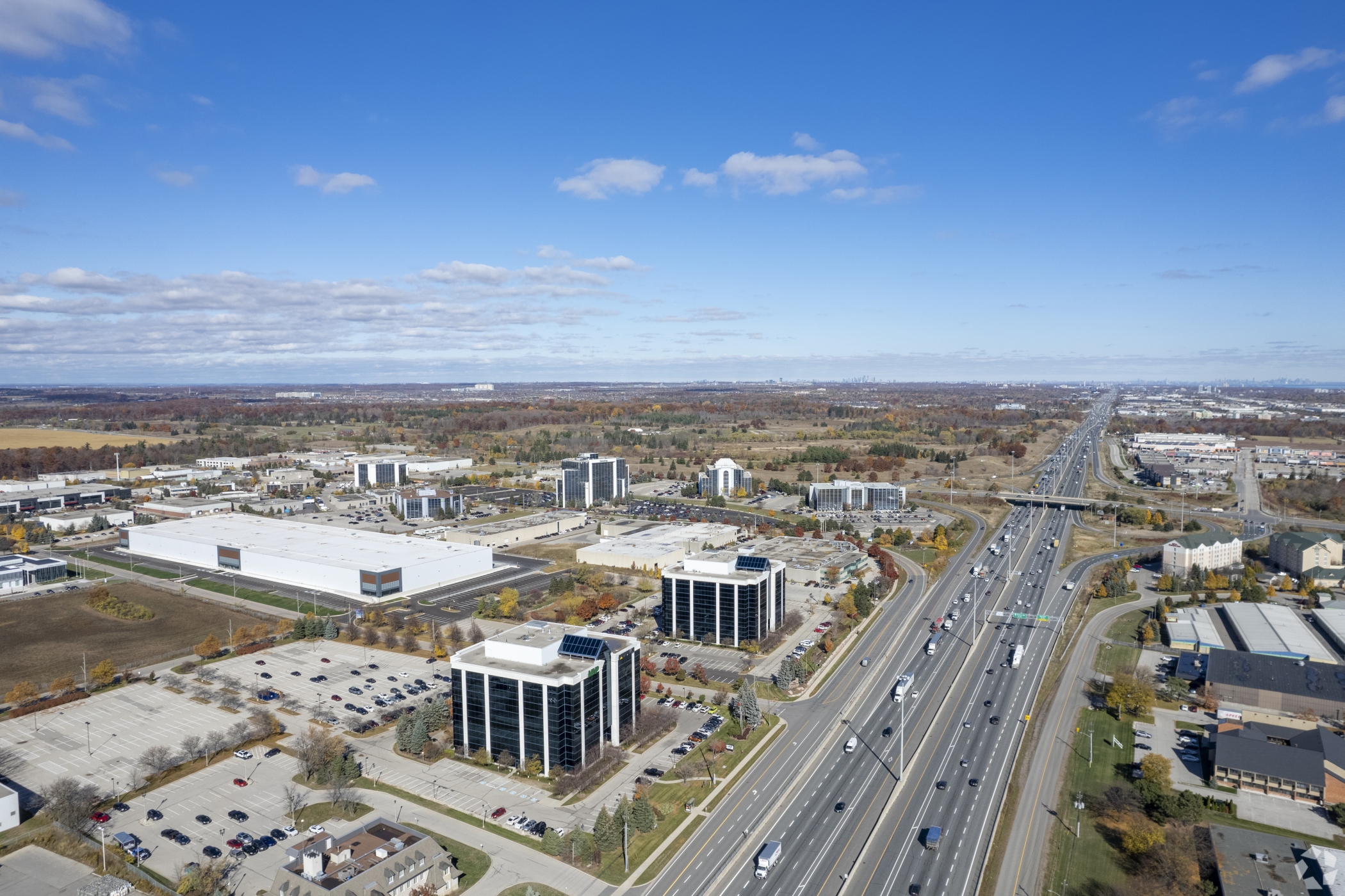
Toronto Investor Affirms Commitment To Suburban Office Sector
Commercial real estate investment firm Crown Realty Partners affirmed its commitment to the suburban office sector with the purchase of two properties in Toronto’s southwest suburbs.
The Toronto-based company said it acquired 1111 and 1122 International Blvd., a pair of seven-storey office properties in Burlington, about 60 kilometres southwest of Toronto. The purchase of the two buildings that encompass 271,571 square feet was made on behalf of Crown’s fifth value-add fund, CR V LP.
Both buildings were reported to be fully leased at the time of sale, according to CoStar information.
“This acquisition reflects Crown’s conviction that well-located, well-built assets, when paired with great management, will thrive in any cycle,” said Emily Hanna, managing partner of investments at Crown, in a statement announcing the purchase.
Crown did not disclose what it paid for the properties or the seller, but CoStar data indicates that the assets traded on June 17, and that 1111 International Nominee, a company tied to Fengate Asset Management, was the seller.
CoStar data shows the Greater Golden Horseshoe region that includes Burlington has outperformed Toronto’s office market with an average office vacancy rate of 5.5% and an availability rate of 6.5%, well below the national rates of 10% for office vacancy and 11.8% for availability.
“This comparative resilience is supported by several factors: more accessible and affordable parking, shorter commute times, and smaller firms having greater control over their return-to-office strategies, independent of global practices affecting Toronto-based headquarters,” CoStar said in a report.
The latest deal is the seventh for Crown Partners’ $260 million investment fund, which is backed by institutional investors and focused on generating value through active leasing, operational improvements and targeted capital upgrades.
For the record
The sale of the two Burlington office buildings was arranged by an investment sales team at Avison Young consisting of Jonathan Yuan and Richard Chilcott, a pair of principals and sales representatives, and Ankit Jindal, a director of the firm’s Capital Markets Group.
Source CoStar. Click here for the full story.

Cadillac Fairview Relies On Its Eateries To Boost Profitability
Tasty food offerings cited as landlord dominates list of Canada’s top money-making shopping malls
Mall food needs to be good, Lillian Tummonds says. She adds that successful menus are a central ingredient to Cadillac Fairview’s success in dominating an annual survey of Canada’s most profitable shopping centres.
The mall owner’s senior vice president of retail cites good restaurants as one of the main reasons Cadillac Fairview owns 13 of Canada’s 25 most profitable shopping centres.
“We focus on food and beverage and feel that it is part of the offering of what our shoppers are looking for,” Tummonds, at Cadillac Fairview, said in an interview. She also praised the newly arrived Auric King Chinese restaurant and its “lovely dim sum” that recently opened in the Toronto-area CF Markville Mall.
Culinary appeal is only part of Cadillac Fairview’s recipe to get shoppers spending money in the malls that dominated this year’s ICSC Canadian Property Performance Data.
Cadillac Fairview, the real estate arm of the Ontario Teachers’ Pension Plan, keeps a finger on the pulse of its shoppers, as evidenced by the popularity of its Toronto’s Eaton Centre, as well as Pacific Centre and Richmond Centre, both in the Vancouver area and the CF Chinook Centre in Calgary, malls that filled out spots two to five in Canada’s profitability rankings.
The four CF malls trailed only Oxford Properties’ Yorkdale Shopping Centre in Toronto, ranked Canada’s most profitable retail centre with average sales of $2,300 per square foot.
Listening to customers
The secret to CF’s mall success lies in “keeping up and listening to our customers to ensure that the malls that we operate offer what they are looking for,” says Tummonds. The company conducts focus groups and looks for “trends in the marketplace and seeing what retailers are resonating (with shoppers).”
Tummonds notes that different shoppers seek different experiences. Some dutifully come to check items off a shopping list, while others “want a complete experience, grab a meal, see a movie, have an afternoon experience that includes food and beverages. For me, I might go in with my list and on other days, depending on who I’m going with, it might be for an afternoon bite and a coffee.”
Cadillac Fairview is among the mall owners aiming to add residential units to many of its shopping centres, including the Carrefour Laval, where CF bought out its 50% partner last year for $553 million, as reported by CoStar News. Tummonds says that the retail and residential mixes have one thing in common: “building a community.”
CF is also attempting to tackle the vacancies left by the bankruptcy of the Hudson’s Bay chain, after the venerable department store went bust. “I was born and raised in Canada, and we had all hoped for a different outcome,” said Tummonds, who notes that CF’s plans for the vacant retail outlets remain to be determined. “It’s too early to tell, but we have constantly evolved our retail experience to ensure the long-term success of our shopping centres. These boxes, locations, are not different.”
The departure of Hudson’s Bay is not without precedent. Tummonds notes that the Seattle-based Nordstrom retail chain also left a large retail space vacant at Eaton Centre in Toronto in June 2023. Cadillac Fairview recently found a way to fill the space. “We are welcoming Simons and Nike intoour (former) Nordstrom box. We have done it before and have been successful at recreating a vibrant retail mix, and we are looking at (similar) opportunities in these locations,” she said.
Source CoStar. Click here for the full story.
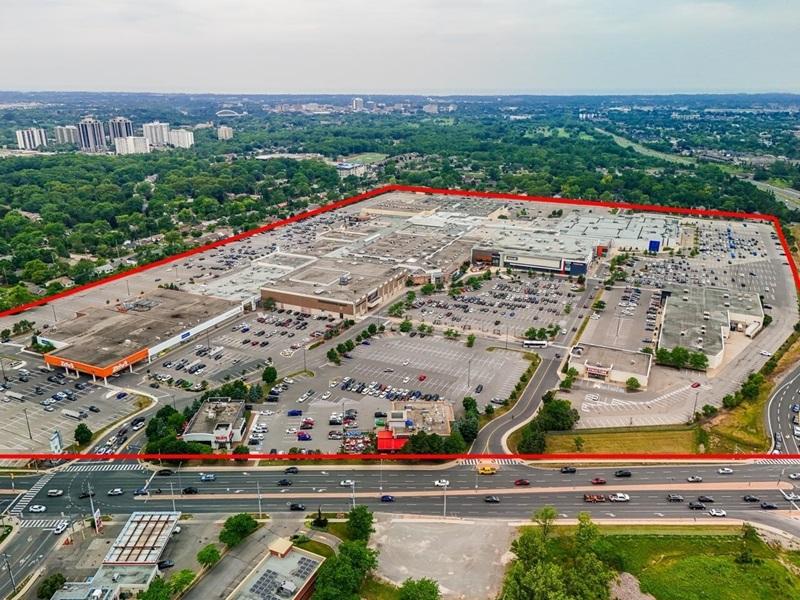
Leyad Buys Niagara’s Pen Centre Mall For $140M
Leyad is again expanding its major retail property portfolio with the acquisition of the Pen Centre in Niagara Region for $140 million, the Montreal-based private investment firm announced.
Calling it a “landmark transaction” for the company, Leyad CEO Henry Zavriyev said part of the attraction for the Pen Centre is its potential for future residential densification.
“This is a transformational acquisition for Leyad,” Zavriyev said in the announcement Thursday morning. “The Pen Centre is not only a premier retail destination serving over 8 million visitors annually, but also a site with extraordinary long-term development potential.
“We see the opportunity to bring thousands of multiresidential units to this already-thriving hub, adding immense value to the community.”
The shopping centre was previously operated by BGO on behalf of former owner the Ontario Pension Board.
The transaction adds to a long list of acquisitions for Leyad, in the retail and other CRE sectors, during the past 18 months. The privately held investor has been one of the most active buyers in Canada during that span of time.
About the Pen Centre shopping mall
Located in St. Catharines, the Pen Centre is the region’s dominant shopping destination, comprising over 1.1 million square feet of gross leasable area on 2.8 million square feet of land. The property is anchored by leading national tenants including Loblaw Companies, Walmart Supercentre, Sephora and Lululemon, all of which are secured under AAA covenants.
The mall boasts current retail sales of approximately $650 per square foot annually.
“Leyad’s vision is to maintain and elevate the Pen Centre’s role as the commercial anchor of the Niagara Region while actively exploring the site’s significant mixed-use redevelopment potential,” the announcement states.
The acquisition is one of the most substantial retail real estate transactions for the region in recent years, and continues a recent spate of major shopping centre and needs-based retail acquisitions across Canada.
Leyad, which was founded with Zavriyev’s acquisition of a small Montreal apartment building in 2016, had a very active 2024.
Leyad very busy buyer in 2024
It bought the Mega Centre Lebourgneuf in September in Quebec City for $66.5 million.
The 341,000-square-foot centre had been owned by Choice Properties and OPTrust and sits on a 43-acre site. The unenclosed power centre had 34 tenants including Costco, Canadian Tire, Sail, Maxi, Linen Chest, Value Village, Dollarama, The Home Depot, Structube, Sports Experts and Staples.
In June, Leyad closed deals for Cornerstone Prince Albert in Prince Albert, Sask., and Garden City Square power centre in Winnipeg for a combined $126 million.
Cornerstone Prince Albert was acquired from Choice Properties and Springwood Developments for $94 million. It comprises about 440,000 square feet of leasable space.
Garden City Square power centre at 783-915 Leila Ave. in Winnipeg was acquired from Primaris for $32 million. The 162,209-square-foot centre sits on 15.7 acres and is fully leased to tenants including Staples, Mark’s, Liquor Mart, Moores, McDonald’s, Marshalls, Dollarama and Planet Fitness.
At the time, Zavriyez told RENX his firm was planning more significant acquisitions.
“We’re at a very unique moment in time where a lot of investors that would usually be buying these great assets aren’t at the table,” Zavriyev told RENX. “The fundamentals of the real estate are great, the locations are great, the tenants are great and the fundamentals of Canada are fantastic with immigration and our infrastructure. Once the markets adjust a little bit in the next few years, we should be rewarded for it.”
Retail and other property acquisitions
Leyad had earlier acquired the 182,031-square-foot North Sydney Mall, which sits on 21.23 acres of land in North Sydney, N.S., for an undisclosed price from Econo-Malls.
The company has been buying more than just retail properties.
Leyad also acquired Hotel & Spa Lac Brome – in southern Quebec, approximately half-way between Montreal and Sherbrooke – for an undisclosed price in a foreclosure sale last summer. It is Leyad’s first hospitality property, a small resort-style hotel with 40 guest rooms, a restaurant serving French cuisine, conference facilities and a spa.
It also expanded its Winnipeg presence with several acquisitions, including the CDI College campus at 280 Main St. The 24,000-square-foot building on 9.27 acres of land offers future highrise development potential of up to 180,000 square feet and 40 storeys.
Elsewhere in Winnipeg, Leyad bought a fully leased 263,430-square-foot distribution centre at 1450 Mountain Ave. in the Inkster Industrial Park; and the four-storey, 79,000-square-foot Johnston Terminal at 25 Forks Market Rd.
The multi-tenanted retail, commercial and office building was originally a railway warehouse in the 1920s before it was refurbished.
Source RENX.ca. Click here for the full story.

GWLRA Unveils 3-Tower Plan For Toronto College Park Redevelopment
GWL Realty Advisors (GWLRA) has unveiled a “once-in-a-generation revitalization” of one of Toronto’s most iconic properties, the 95-year-old College Park building at Yonge and College streets in the heart of the downtown core.
The plan includes three new highrise towers from 65 to 96 storeys — including one “super-tall” building.
After announcing several months ago it was seeking a vision to redevelop the property, which will be 100 years old in 2030, GWLRA today unveiled a mixed-use proposal which retains and restores the existing heritage building, completes the original vision to include a highrise component, and adds more modern elements with an architectural nod to the building’s history.
“Toronto has waited nearly 100 years to see a completed vision for College Park come to life,” Daniel Fama, the vice-president of development at GWLRA, said in the announcement Tuesday afternoon. “We intend to restore and protect College Park’s heritage, while introducing 2,334 new housing units, a new hotel, new retail and entertainment space, and new public space that makes sense for the Toronto of today.
“College Park will be a major cultural destination.”
While no construction timeline is immediately available, GWLRA has submitted a development application for the property to the city. There is no indication of how soon the project might actually get under way, but a spokesperson for GWLRA told RENX the firm anticipates two to four years before shovels would go into the ground.
The project will be developed on behalf of GWLRA’s client, property owner The Canada Life Assurance Company.
The design team for College Park
The College Park redevelopment is being designed by Toronto firms Hariri Pontarini Architects (HPA), ERA Architects and PUBLIC WORK to transform the intersection of Yonge and College into an essential retail and cultural hub.
Part of this involves completing the original vision for College Park. It was conceived as an upscale 37-storey retail landmark — a “City Within a Block” meant to rival New York’s Rockefeller Center. However, the Great Depression forced the scaling back of architects Ross & Macdonald’s original, grand vision for the art moderne and art deco building.
The proposed towers would stand 96, 75 and 65 storeys with the tallest hitting 333.3 metres, just over 1,000 feet, the spokesperson told RENX. The project is to contain 2.54 million square feet of space, most of it devoted to new housing components. The podium will range up to 12 storeys.
The plan for the Yonge Street podium includes restoring the “spectacular grandeur of the interior arcade, which would reconnect passersby to a Parisian-style vitrine shopping experience” the announcement states. It protects and expands The Carlu, the Art Deco event venue on the building’s seventh floor, with outdoor terraces and more indoor space for conferences.
“College Park is one of the most significant works of architecture in Toronto,” ERA Architects principal Scott Weir said in the announcement. Weir also worked on the 2003 restoration of The Carlu.
“For its whole existence, College Park has never reached its full potential. This project is our chance to get it right for the beginning of its second century.”
Three new towers to be added to site

The three new mixed-use residential towers, designed by HPA, are based on the Art Deco heritage architecture of the podium, with elements that echo 1920s skyscrapers.
HPA has designed a ribbon-like raised pathway that winds through College Park’s interior, linking College and Yonge to a glass-encased atrium and outdoor public space at the rear.
“Our starting point for the new College Park architecture was to embrace ERA’s heritage work and ideas from the early 1920s,” founding partner David Pontarini said in the announcement. “We intend to respect the building’s architectural DNA and bringing that up vertically into modern towers that contribute back to the skyline.
“If you squint, College Park would look like one development, built at one time.”
The design also incorporates the addition of a new tree canopy, native plantings and other elements in the outdoor plaza which backs onto, and is overlooked by, the glass atrium.
Higher up, rooftop gardens inspired by the 1920s “urban mountain” concept would sit atop a series of plateaus, accessible from the sky lobby where the heritage building meets the three towers.
“College Park would mark a new metropolitan culture in Toronto by demonstrating how public and urban vitality can expand from the park and the street, inside and out, from the ground floor into the sky,” PUBLIC WORK principal and co-founder Marc Ryan said in the release. “We want to rev up the intensity of the public experience with a stronger sense of urban forest and more access to light.
“The building would fully embrace the public realm.”
Busy, highly populous neighbourhood
The project is to be developed in one of the city’s busiest and most densely packed neighbourhoods, and incorporates access into the TTC’s College Station subway stop. A quarter million passengers each week pass through that station.
“Community engagement has been and will continue to be robust and essential,” Fama said in the announcement, noting a website has been created to keep the public updated on news about the site. “This is just the beginning of a multi-year, iterative process, and we encourage the public to stay involved and share feedback through College Park 100.”
Source RENX.ca. Click here for the full story.

Hullmark Buys Stake In Jane Finch Mall, Huge Redevelopment
Toronto-based developer Hullmark has acquired a minority stake in the Jane Finch Mall property, and with majority owner Brad-Jay Investments Ltd., plans to move forward with a major multi-phased, mixed-use redevelopment.
Financial details of the partnership have not been disclosed.
Brad-Jay’s development proposal for the site – which it has owned and operated since 1968 – has been approved by the City of Toronto. It is to incorporate housing, retail and community amenities in as many as 11 towers built over podiums of various heights.
Full build-out would take place over a 15- to 20-year period.
“We’ve been clear from the beginning that we will take the time needed to find the right partner, and we found that in Hullmark,” Jay Feldman, Brad-Jay’s chief executive officer, said in Monday’s announcement. “Hullmark brings deep experience in thoughtful, community-minded urban development.”
Hullmark is to act as the master development manager for the project.
“We’re looking forward to working collaboratively in the years ahead to help shape the future of this site in a way that reflects the needs and aspirations of the Jane Finch community.”
The development plan for Jane Finch Mall
The plan filed with the city includes six towers ranging from 27 to 50 storeys in the first phase, which would be built in three stages. All will incorporate multi-tiered podiums up to eight storeys. This is to be constructed mainly on parking areas, with most of the mall to continue operating.
It would deliver approx. 2,650 housing units of various types plus commercial space, a childcare centre, indoor amenities and outdoor park space.
The expanded 18-stop Finch West LRT line, which is undergoing testing and is slated to go into service in the coming months, is at the front of the property.
The concept for the second phase also includes multiple towers and podiums, as well as a larger commercial component.
“The Proposal has been crafted with a deep understanding of the importance that the Jane Finch Mall has for its tenants, the Mall Owners, and the local community,” the plan created by Urban Strategies Inc., states. “In recognition of this, a phasing strategy has been developed alongside the Proposal to support incremental change and an interim plan in which the majority of the Mall remains in place within the short to medium term.
Community engagement process
The partnership represents a key milestone in an ongoing planning process, which kicked off in 2021 with a community engagement initiative called jfm+. More information about the plan and engagement process is available at jfmplus.ca.
“We’re proud to be part of such a meaningful and community-led redevelopment process,” Jeff Hull, president of Hullmark, said in the announcement. “My grandfather, Murphy Hull, played a key role in establishing this neighbourhood – helping bring York Finch General Hospital to life and leaving a lasting legacy in the community. Today, that same spirit of long-term partnership and community focus inspires us.
“Taking a minority stake in this site reflects our belief in honouring the community’s decades-long vision and building together for the next generation.”
“Brad-Jay has managed to consistently improve the mall over many years – their successful rezoning imagines the future improvement for the mall, and Hullmark is thrilled to be a partner in delivering value to the partnership and community,” Noah Rechtsman, Hullmark’s executive vice-president, added.
About Brad-Jay and Hullmark:
Brad-Jay Investments Ltd. is an affiliate of Southdown Builders Ltd., a family-owned company founded more than 75 years ago, involved in the ownership, development and operation of residential and commercial real estate throughout Canada.
Hullmark is a real estate investment and development platform focused on transforming urban properties in Toronto. Founded in 1950 by Murphy Hull, the family-owned firm is now led by his grandson Jeff Hull.
Hullmark has been involved in many major developments, including the mixed-use Hullmark Centre at Yonge and Sheppard.
Source RENX.ca. Click here for the full story.
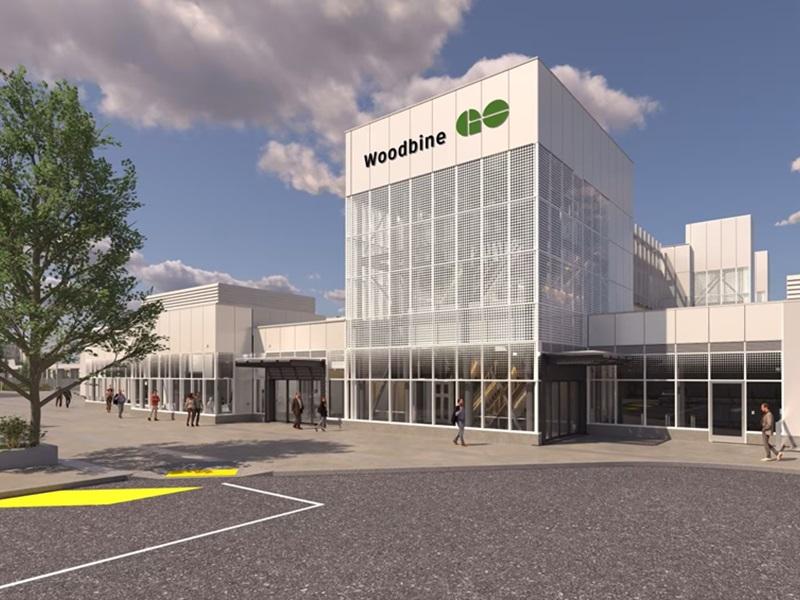
Go Station To Open Up Woodbine Racetrack For Major Development
A new GO Transit commuter train station at Toronto’s suburban Woodbine Racetrack is being touted as the anchor to kick off one of Canada’s largest urban developments by the facility owners, Woodbine Entertainment.
Construction on the new Metrolinx GO Station was officially started today on the track’s sprawling 684-acre property along Rexdale Boulevard, in Rexdale, near Toronto’s border with the City of Mississauga.
“This is a once-in-a-generation opportunity to create something truly special for Toronto,” said Michael Copeland, the CEO of Woodbine Entertainment, in Thursday’s announcement. “At the heart of this new urban centre will be Woodbine Racetrack, a cultural landmark that will now also serve as the centrepiece of a thriving, inclusive and connected city within a city.”
Woodbine is Canada’s best-known horse racing facility, and is annually home to Canada’s longest-running sporting event, the King’s Plate.
Woodbine Entertainment is investing $170 million toward construction of the new GO station to create a new transit hub at the site. It also intends to lead the urban development, calling it “a vibrant, transit-connected urban centre in northwest Toronto that will deliver tens of thousands of new homes, jobs, and economic opportunities.”
Large tract of undeveloped land
The property represents one of the largest tracts in the city which is available for development.
The new urban centre is to take shape during the next 25 years, supporting an estimated 43,000 construction jobs over the life of the project. The development will be designed to help address housing affordability and employment needs in one of Toronto’s most underserved areas.
The race track and attendant stables, a training track, dormitories and other facilities for the racing operations, as well as a theatre, casino, hotel and entertainment-related businesses already occupy a significant portion of the property. However, there is a large tract of land along Rexdale Boulevard and Hwy. 427 west of the racetrack which is vacant, along with property along Hwy. 27 to the east of the facilities.
The property is also directly across the road from the Woodbine shopping centre, has access to local bus routes and from Hwy. 427, linkages to all of Toronto’s other major freeways.
The proposed development is to include affordable housing, including new accommodations to replace the existing dormitories for backstretch workers who care for the 1,700 horses stabled at Woodbine.
However, few updated details are immediately available about what would actually be built, nor are there any timelines proposed.
Woodbine Entertainment, which operates like a not-for-profit corporation, plans to develop and retain ownership of the land and “explore strategic joint ventures” to facilitate the new developments.
“This isn’t just about building housing. It’s about creating a complete community, a connected urban centre, with culture, entertainment, green space and horse racing at the heart of it all,” added Copeland.
Source RENX.ca. Click here for the full story.


